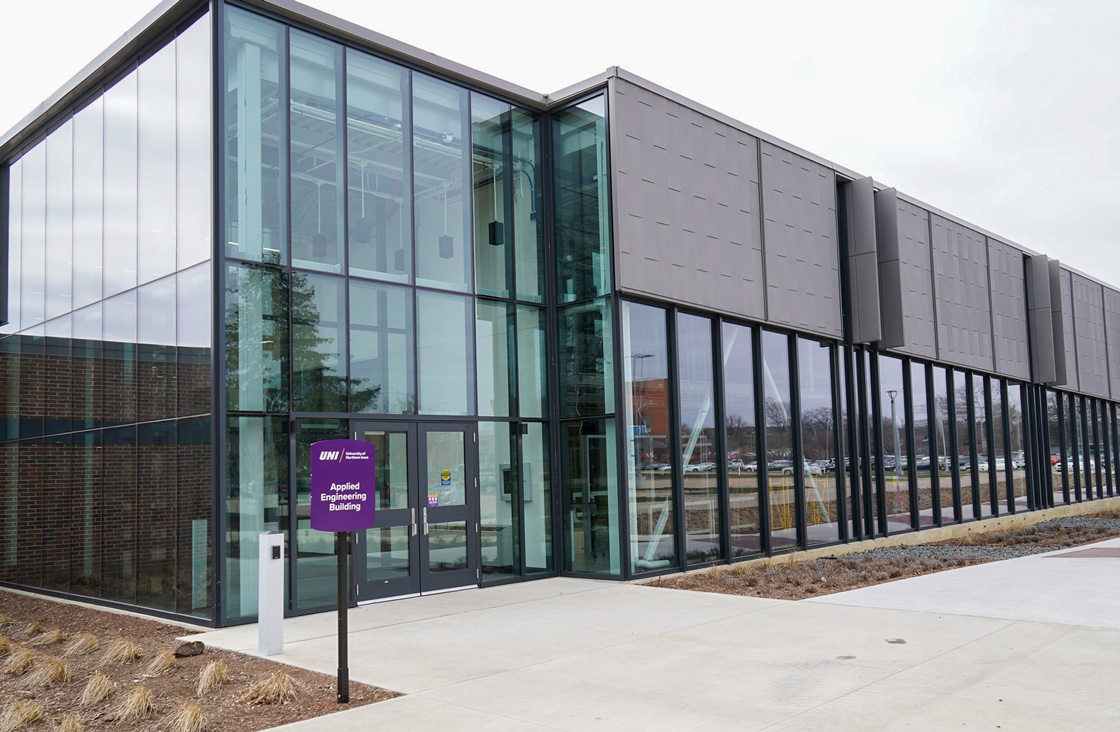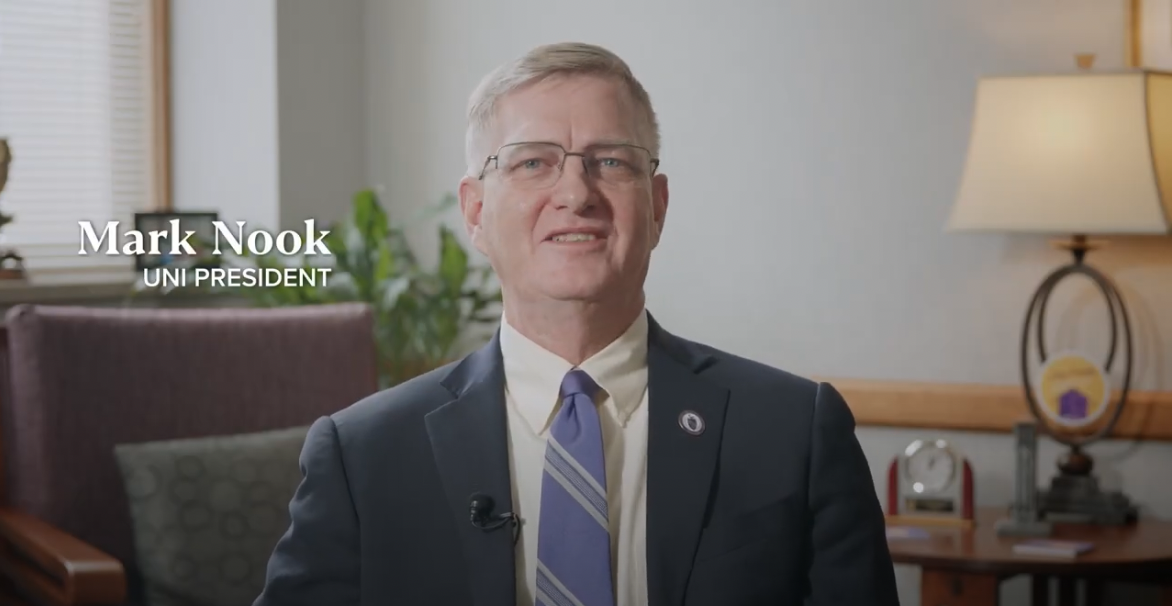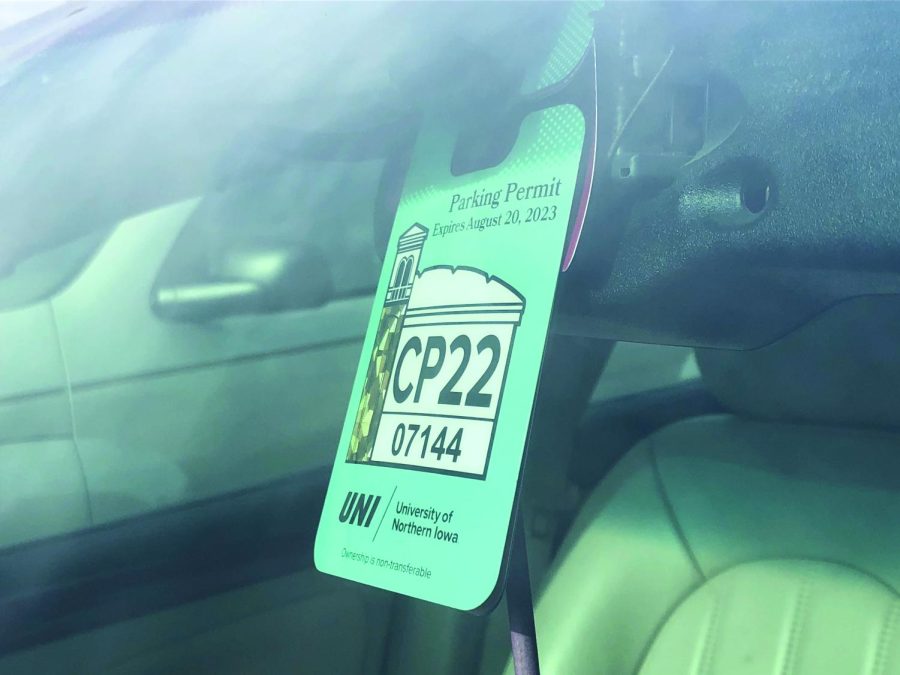United Faculty, UNI’s faculty labor union, opposes several bills that recently passed Iowa’s House and would severely damage the University of Northern Iowa, Iowa State, and the University of Iowa if approved by the Iowa Senate.
The three bills, HF 269 (the “Freedom from Indoctrination Act), HF 295 (the “Accreditation Autonomy Act” and HF 401 (the “Core Curriculum Act”) all seek to censor university faculty and bend the universities and their curriculum to an agenda that undermines critical inquiry, free speech, and student choice.
“These bills all censor university faculty and prohibit the discussion of a number of basic topics having to do with race, gender, and inequality in majors, minors, and individual courses,” said Christopher Martin, president of United Faculty. “These bills destroy the essence of college education: Open critical inquiry, free speech, and the ability of students to make their own decisions in what they want to study. Instead, the bills endorse a radical agenda that seeks to muzzle free speech and violate the First Amendment.”
The three bills that would do great harm to Iowa’s public universities:
This bill prohibits academic content that “Promotes the idea that racially neutral or colorblind laws, policies, or institutions perpetuate oppression; injustice; race-based privilege, including white supremacy or white privilege; or inequity by failing to actively differentiate on the basis of race, sex, or gender” for academic programs, majors, minors, or certificate requirements. In other words, the state government would exercise prior restraint (the legal definition of censorship) over what a faculty member can teach in a course or academic degree program.
The bill is an existential threat to academic areas like sociology, social work, political science, communication and media, English, psychology, education, history, and other programs. If instructors can’t speak about these topics, they can’t teach their programs’ required courses – and their students can’t learn. Thousands of tuition-paying students across all three universities could potentially lose their majors or minors because the central subject area or those majors or minors would be prohibited. It also will harm state universities’ chances of recruiting out-of-state students (undergraduate and graduate) who wish to study in these fields if Iowa’s public universities cannot offer the expected curricula within their disciplines. Students will go elsewhere.
This bill puts UNI’s accredited programs at a disadvantage compared to universities in other states. The state of Iowa’s proposed academic program standards would be in conflict with the high national standards of accrediting agencies, which review and put their stamp of approval on university programs across the country.
With this bill, the regents universities would be prohibited from complying with the high standards of national accrediting agencies, and would have to adhere to state’s lower standards that require, for example, censorship of material in a number of disciplines (see HF 269).
UNI’s faculty, staff, and students just spent five years and a lot of money building a state-of-the-art general education curriculum called UNIFI – UNI Foundational Inquiry – which debuted in 2022. (See https://undergraduatestudies.uni.edu/unifi). The UNIFI curriculum requires students to take general education courses from seven areas. While doing so, students are also enabled to earn one of the resumé-friendly certificates that are built into the program, one of the many components lacking in the legislature’s top-down general education bill. The UNIFI program built student choice into the design, where students are not forced to take courses but given a variety of options across fields of study to complete the curriculum.
Unfortunately, the language of HF 401 proposes that all three Iowa regents universities adopt a much more limited general education program created by a New York City-based organization that seeks to have all 50 states conform to its political plan.
The bill again censors faculty, prohibiting content “that teaches identity politics or is based on theories that systemic racism, sexism, oppression, or privilege are inherent in the institutions of the United States of America or the state of Iowa.”
How, for example, will censored instructors be able to explain the historic events of the 14th Amendment (1868) giving citizenship rights and equal protection under the law to Black Americans), and the 19th Amendment (1920) giving women the right to vote, without explaining the systemic racism and sexism inherent in the institutions of the U.S. at that time?
Overall, these three bills threaten the core and mission of Iowa’s universities.
“These laws would do great harm to the national standing of Iowa’s regents universities,” said Robert Earle, vice president of United Faculty. “Iowa taxpayers have supported building three of the finest higher education institutions in the country. But these bills would cut against those hard-won reputations as aspiring students will not want to attend universities that are operated under government-enforced censorship.”
Iowa’s public universities have a broad mission and an enormous economic impact on the state.
The Iowa Code requires that the University of Northern Iowa “offer undergraduate and graduate courses of instruction, conduct research and provide extension and other public services in areas of its competence to facilitate the social, cultural and economic development of Iowa.”
According to the Iowa Board of Regents, the three state universities collectively account for at least $15 billion annually to the state of Iowa economy.
United Faculty, established in 1976, is the chief negotiating agent for the University of Northern Iowa’s faculty, and is affiliated with the American Association of University Professors (AAUP) and American Federation of Teachers (AFT). The labor union represents more than 500 faculty members on UNI’s campus.














